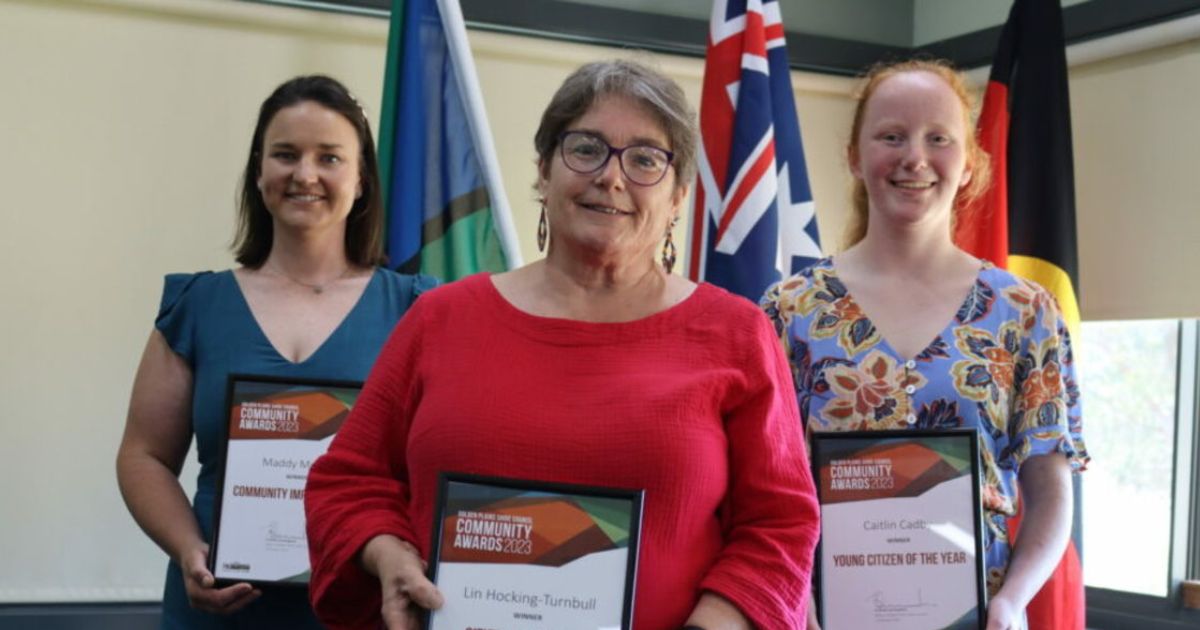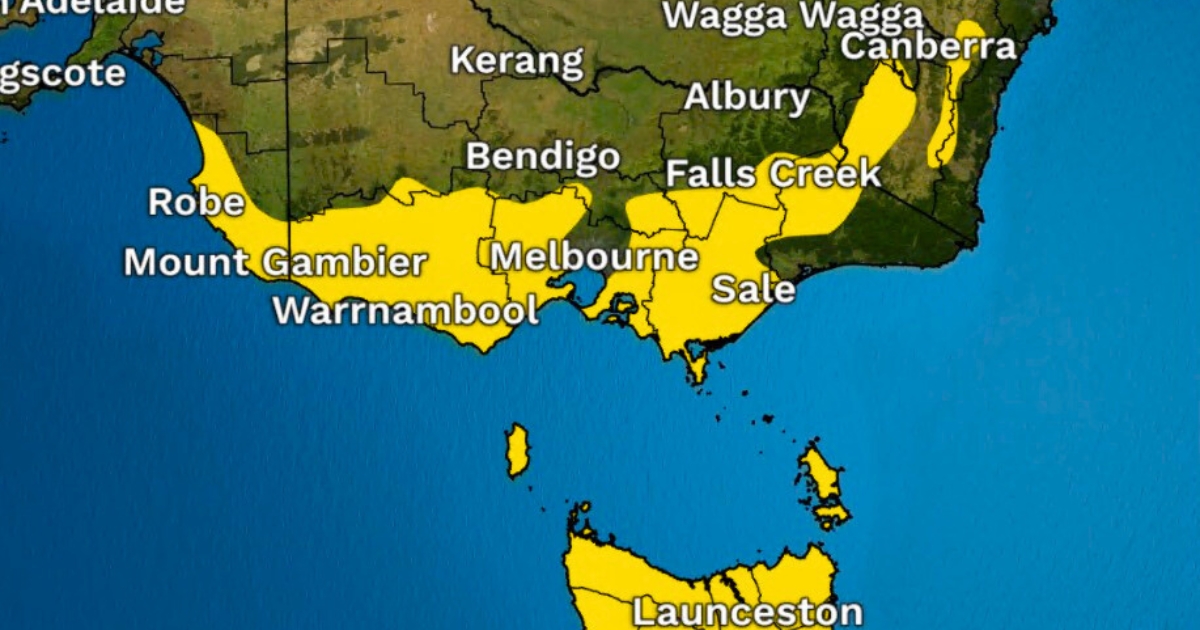80 years of Interknit

Hard at work: Kassie and Andrew Blaszak have owned and operated Interknit on Humffray Street South for 15 years. Photo: FILE
BY LUKE HOOKE
The story of Interknit is one of change and innovation.
Over 80 years of operation the business has been through several iterations.
The business has changed ownership, moved location, and at various times produced socks and jumpers for the Victorian Football League, school jumpers for hundreds of different schools, and now everything from baby clothing to high visibility safety jumpers.
Those who established the business in a decommissioned Clunes state school building in 1939, wouldn’t recognise it today. But, one thing has remained consistent and that is a commitment to using quality Australian wool.
Interknit today is an exciting outfit, spearheaded by owners Andrew and Kassie Blaszak, who took over the reins 15 years ago.
Andrew and Kassie speak about the experience of taking over, running and developing the business while also starting a family, as a tough but rewarding experience.
“I was working as a company accountant for the former owner of Interknit in the early 2000’s when the business was offered for sale,” Andrew said.
“At that time the business was working exclusively as a wholesaler and we saw an opportunity to purchase and grow the business, so we did.”
Andrew bought the business in 2005 and his then girlfriend Kassie joined him full-time in 2007. Soon after, the young couple were hit hard by the financial crisis of 2008.
“Taking over the business at that time was incredibly difficult. We were forced to innovate and learn to do things ourselves rather than seeking outside help. It was really tough,” Kassie said.
Years of hard work, self-education in the mechanics of various machines and an innovative swag of new products has seen Andrew, Kassie and their team of dedicated staff build Interknit into what it is today.
Interknit operates behind a shopfront in Humffray Street South. Knitting and sewing machines, new and old, work tirelessly producing garment pieces that are then sewn together by the team of busy, skilled workers.
The trouble with these skilled staff is that they, like many of the sewing machines are getting older.
“In this industry it’s really difficult to replace skilled staff,” Andrew said.
“We have staff here that have been with Interknit since the days in Clunes.”
Ballarat, Clunes and Creswick were once a centre for the textiles industry and accompanied by the necessary training and workforce of skilled seamstresses, tailors and machine operators.
Unfortunately for Interknit, with the demise of this industry in the second half of the 20th century, the workforce has also dwindled.

While the staff Interknit have are skilled and dedicated, as they inevitably retire it is almost impossible to replace them.
One worker I met when visiting the factory was Jamie Andrews. Jamie worked at the original Clunes Interknit factory before it moved in to Ballarat in the late 80s. He is responsible for the maintenance and operation of the fleet of beautiful knitting machines that have survived since that day.
These original mechanical knitting machines are coded through an elaborate and fascinating system of tags. Punched holes in the tags carry the code that instructs the knitting machine.
At a time where everything seems to be digitised and connected to your smartphone, it’s a stunning experience to watch the old knitting machines at work.
While old machines are beautiful, they also present challenges.
Andrew spoke of sleepless nights catching up on the day to day operation of the business while days were spent learning how to operate, repair and maintain some of the machines they operate under the expert tutelage of his experienced staff
But it wasn’t just the old machines that seemed to have caused Andrew and Kassie grief. They made some purchases of modern equipment that turned out to be just as difficult to operate.
With the operation manuals often in a foreign language and no local knowledge of these new machines to call on, troubleshooting is often done by the same staff who operate the machines.
To get around this, Andrew and Jamie now take one week a year to learn from an international trainer who schools them the maintenance and operation of the new machines, as well as keeping their skills up to date in software innovations.
Interknit offers its customers an embroidery service which for many years was outsourced. In order to reduce costs Andrew and Kassie made the decision to purchase an embroidery machine.
Talking about the venture into embroidery brought pained smiles to their faces.
“Getting into embroidery was tough,” Andrew said.
“Like everything else we had to learn things ourselves, from scratch. We bought the embroidery machine without a clue how to operate it. Kassie spent months learning and perfecting how to use it.”
 That hard work has paid off with the embroidery machine now attracting business of its own.
That hard work has paid off with the embroidery machine now attracting business of its own.
Nothing seems to have been easy for the Interknit business in its 80 years of operation. Similarly, Andrew and Kassie seem to have had to do everything the hard way since taking over.
Undeterred by challenges, Kassie has introduced a new collection of baby blankets, throw blankets and cushions under the Branberry brand and is currently developing a line of baby clothing. Something she is clearly very proud of.
Maintaining a commitment to wool, they are using modern practices to produce machine washable and tumble dryable garments, adjusting to the needs of the new generation of wool wearer.
“We’re conscious consumers today are busy people and might not have the time or patience to hand wash delicate garments,” Kassie said.
Visiting the Interknit factory and talking to Andrew, Kassie and the team, it’s clear that the Interknit business is in good hands going into its next 80 years.
They’re not without their challenges, but they have the right frame of mind. They’re innovative, fast learners and are yet to shy away from a challenge.
Article author Luke Hooke is currently on a year long journey championing the versatility and dependability of wool. He’s only wearing wool or wool-blends and you can follow his progress at yearofwool.com.au.


















